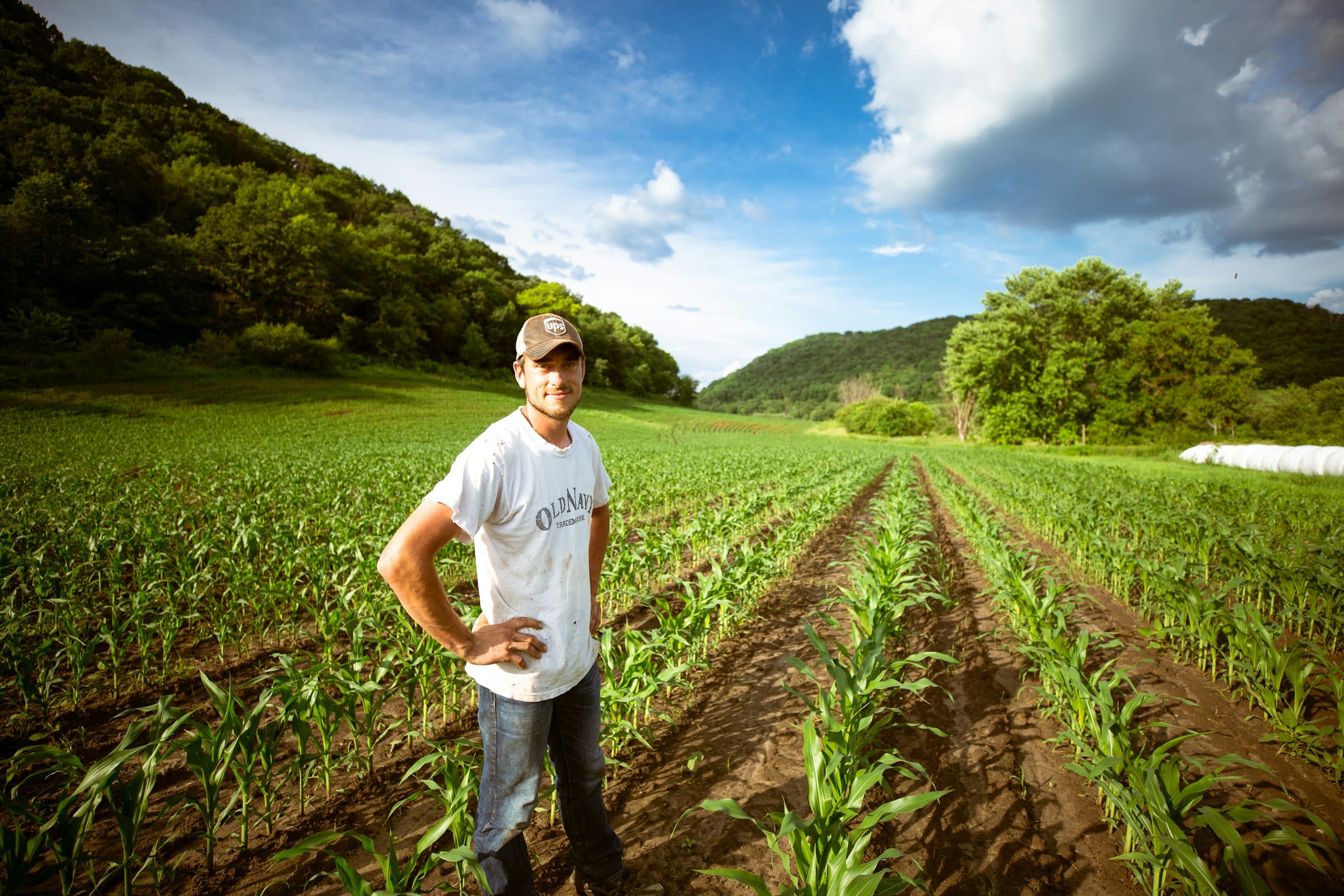How to Promote Digital Literacy Among UK’s Aging Farmers?

In a world embracing digital technology, the agricultural sector is no exception. As tech companies and agricultural researchers unveil new technologies, digital literacy becomes paramount for farmers, both young and old. The rise of various digital technologies like Google’s agricultural support models and advanced internet access tools presents a need to empower the older generation of farmers in the UK with the necessary digital skills. This article explores the strategies to promote digital literacy among the UK’s aging farmers, taking into account their behaviors, factors influencing their willingness to learn, and the role of social support systems in their digital literacy journey.
The Importance of Digital Literacy in Modern Farming
The dawn of modern farming brings along a host of digital tools, from advanced machinery to various software models, to aid in efficient and productive farming practices. Therefore, digital literacy, the ability to use and understand these digital tools, is no longer a luxury but a necessity for every farmer, regardless of their age.
Additional reading : What Are the New Safety Protocols for UK’s Adventure Sports Tourism?
Many farmers in the UK, particularly the older generation, struggle with adopting these technologies, primarily due to lack of digital literacy. Their behaviors, largely influenced by factors such as limited access to technology, lack of knowledge, and minimal social support, often serve as barriers to digital literacy. Understanding these variables can help in developing effective strategies to promote digital literacy among this demographic.
Tackling the Barriers to Digital Literacy
Addressing the barriers to digital literacy among older farmers requires a multi-faceted approach. This involves understanding the variables that influence their behavior and willingness to embrace technology.
This might interest you : What’s the Latest in Microgrid Technology for UK’s Remote Communities?
Rural location, for instance, often limits access to reliable internet, making it challenging for farmers to access digital tools or online training resources. Similarly, older farmers may lack the knowledge or skills to navigate digital platforms effectively. In many cases, they may also lack the willingness to learn about technology, often due to fear or skepticism.
The first step towards overcoming these barriers is by providing reliable internet access to rural areas. Initiatives such as Google’s Project Loon, which aims to deliver internet access to rural and remote areas using high-altitude balloons, could be a model to replicate.
Tailoring Digital Literacy Programs to Older Farmers
Traditional digital literacy programs often target younger, tech-savvy audiences, neglecting the unique needs and challenges of older learners. Therefore, there is a need for specially tailored programs that consider the behaviors, learning pace, and digital knowledge of older farmers.
Such programs should incorporate hands-on training to help farmers understand how to use specific digital tools for farming. These programs can also leverage models like Google’s agricultural support tools to illustrate real-life applications of technology in farming.
The Role of Social Support
Social support plays a crucial role in promoting digital literacy among older farmers. Farmers, like anyone else, are more likely to try new things when they feel supported and encouraged.
This support can come in various forms. For instance, younger farmers or family members can be encouraged to share their digital knowledge with the older generation. Agricultural cooperatives can also organize training sessions or provide resources to their members.
Further, government bodies and non-governmental organizations can provide support through targeted policies and programs. For instance, they can provide funding for digital literacy programs or offer incentives to farmers who adopt digital technologies.
Building a Digitally-Empowered Farming Community
Promoting digital literacy among older farmers goes beyond equipping them with digital skills; it is about building a digitally-empowered farming community. A community where farmers, regardless of their age, can leverage digital technologies to make informed decisions, improve productivity, and ensure sustainability.
This can be achieved by creating an environment that fosters continuous learning and exchange of knowledge. Digital literacy hubs, for instance, can be established in rural areas. These hubs can serve as physical spaces where farmers can access digital tools, learn about new technologies, and interact with other digitally literate individuals.
In conclusion, promoting digital literacy among the UK’s aging farmers is a task that requires collective effort from all stakeholders. By understanding the barriers to digital literacy, tailoring digital literacy programs to older farmers, leveraging social support, and building a digitally-empowered farming community, we can ensure that our farmers are not left behind in the digital revolution.
Shaping the Theoretical Model for Digital Literacy Among Farmers
Crafting a theoretical model for digital literacy among older farmers is a pivotal step towards bridging the digital divide. This model should be based on an in-depth understanding of the farmers’ behaviours, their attitudes towards digital technology, and their willingness to learn.
The first aspect of the theoretical model involves identifying the digital devices that are pertinent to modern farming. These include advanced machinery such as GPS-guided tractors, drones and automated irrigation systems, and software tools like Google’s agricultural support models or farm management software.
The model should also consider factors that influence the willingness of older farmers to adopt these technologies. Studies have found that while some older adults may be hesitant due to concerns about the cost or complexity of technology, others may be eager to learn if they see the potential benefits for their farm. Understanding these factors can guide the design of digital literacy programs, making them more enticing for older farmers.
The theoretical model should also take into account the role of social support and encouragement. A supportive environment, where farmers feel their efforts to improve digital literacy are recognized and appreciated, can significantly increase their willingness to learn.
Finally, the model should emphasize the importance of continuous learning, as digital technology is constantly evolving. Farmers need to be prepared to keep up with these changes, requiring a commitment to ongoing education.
Leveraging Tools Like Google Scholar to Improve Digital Literacy Among Farmers
Google Scholar and other similar platforms can be powerful tools in the fight to boost digital literacy among older farmers. These platforms offer a wealth of information related to digital technology in farming, from academic research papers to practical guides, which can help farmers gain a deeper understanding and improve their digital skills.
Older farmers can use Google Scholar to research topics like the latest advancements in agricultural technology, how to use digital devices in farming, and the benefits of digital technology for productivity and sustainability. They can also find case studies or success stories of other farmers who have successfully adopted digital tools, which can serve as inspiration and motivation.
However, using resources like Google Scholar effectively requires a certain level of digital literacy in itself. Therefore, digital literacy programs should include training on how to use these platforms. This could involve teaching farmers how to navigate the platform, search for relevant information, and interpret the results.
Conclusion: Achieving a Digitally Literate Rural Economy
Digital literacy among the UK’s aging farmers is not just about individual empowerment; it’s about boosting the rural economy as a whole. When farmers are digitally literate, they can make better use of digital technologies to improve productivity, reduce costs, and make their farms more sustainable. This, in turn, can contribute to a stronger and more resilient rural economy.
Promoting digital literacy among older farmers is a challenging task, but by understanding their unique needs and attitudes, and by leveraging social support and tools like Google Scholar, we can make significant progress.
It’s also important to remember that digital literacy is not a one-time goal but a continuous journey. As digital technologies continue to evolve, so too should our efforts to promote digital literacy. By creating a culture of continuous learning and empowering farmers with the knowledge and skills they need, we can ensure that no farmer is left behind in the digital revolution.
In conclusion, the promotion of digital literacy among the UK’s aging farmers requires a collaborative effort. It is a task that demands understanding, patience, and persistence. The process may be slow, but the rewards – a digitally literate farming community and a thriving rural economy – are indisputably worth the effort.
